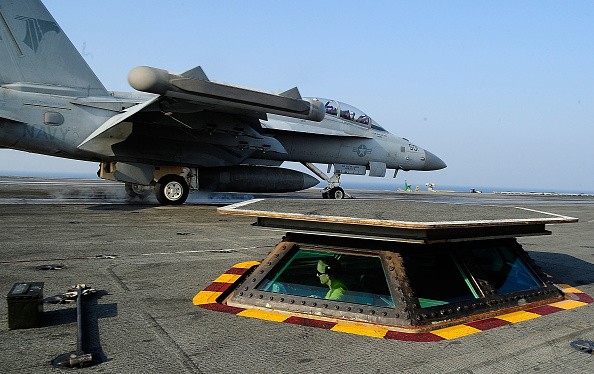In response to the United States' plan to push through with the deployment of the Terminal High Altitude Area Defense (THAAD) system in South Korea, China and Russia have agreed to implement unspecified countermeasures. Both countries fear that the system is a threat that is too close to their borders.
South Korea's National Security Office Chief Kim Kwan-jin recently met with incoming U.S. National Security Adviser Michael Flynn, reaffirming that the THAAD's deployment will be pushing through as planned. The anti-missile system has been cited as a solution to potentially stop a nuclear attack from North Korea.
The THAAD's deployment has sparked worry from the two countries. China and Russia have grown concerned over the system's powerful radar, which can potentially compromise their security and do nothing to lower the tension on the Korean peninsula. They also believe that the deployment of the system in South Korea is an attempt to geopolitically contain them.
The two countries have also reaffirmed their commitment to a nuclear-free North Korea, believing diplomacy and not an arms race is the best way forward.
"We think the U.S.-South Korean decision to deploy the THAAD missile defense system has seriously threatened China's security interest," said Chinese Foreign Ministry spokesman Lu Kang.
"For the region, it will also break the strategic balance. So, it's completely understandable to see countries in the region firmly oppose this decision."
He added that China and other countries have to address the respective legitimate security concerns and take necessary measures to safeguard their security interest.
Russia has shared China's sentiments and concerns over the deployment.
"Deployment of U.S. missile defense systems in South Korea clearly goes beyond the tasks of deterring 'the North Korean threat,'" said Russian Deputy Defense Ministry Anatoly Antonov in October.
He added that without a doubt, the U.S. and its allies will continue to build up the potential of the Asia Pacific segment of their global missile system, which will inevitably lead to disruption of established strategic balances both in the Asia Pacific and beyond.
First announced in July, the Obama administration promised the system by the end of the year. Aside from the strong opposition coming from the two countries, American activists also urged the outgoing U.S. government with a 100,000-strong petition to reconsider the decision.
However, the Obama administration shot the petition down, saying that the system would 'not undermine China or Russia's strategic deterrent'.
While the U.S. claims that its objective is to contain the nuclear threat in North Korea, it seems that the deployment will potentially add more tension in the Asia Pacific.



























